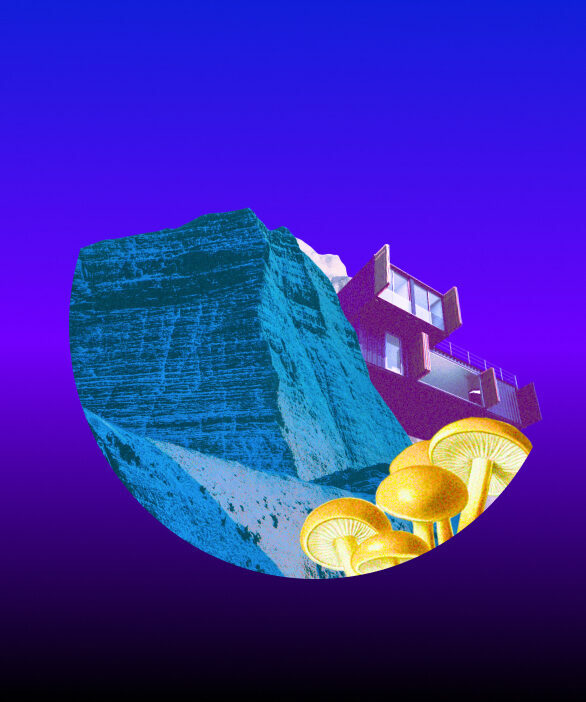In this article, we delve into the real-world impact that blockchain technology could have on the healthcare sector.
The blockchain is an encrypted way of distributing information in a shared database. The network can be public (open to anyone) or private (restricted to certain members) and when new information is added, every computer on the network is updated in real time. The result is a comprehensive library of secure and accurate information. Imagine the impact on the healthcare system if this next generation technology was adopted: improved efficiency, reduced costs and better patient outcomes.
We're presenting 5 scenarios to provide an idea of what could be possible if medical professionals had access to a shared source of truth; a robust network made possible with blockchain technology.
Scenario 1: A database of symptoms and treatments for more accurate patient diagnosis
Currently, patients with rare illnesses or symptoms are at the mercy of local hospitals and medical practitioners. If a doctor isn’t familiar with a patient’s symptoms or has never dealt with the illness before, their treatment options are limited by the doctor’s lack of knowledge and experience.
But with blockchain technology, the medical histories of patients from around the world could be stored and shared in a central database. With the click of a button, doctors in any country in the world could access and search through comprehensive records of symptoms, diagnoses, treatments and outcomes.
For patients with unusual or rare symptoms, this means more accurate, efficient and effective treatment - an improvement that could save lives.
Scenario 2: A source of truth for patient medication and prescription information
Medications are prescribed and filled by different providers across the healthcare industry. Each one of these providers - hospitals, GPs, pharmacies, and dentists - maintains its own record of medications for a patient, frequently using outdated or incorrect information. In addition, different providers in different networks don’t share their prescription data and a lot of practitioners use paper prescriptions, which can easily be duplicated or lost.
The result is an inefficient system that not only impacts patient treatment but also leaves medication providers open to prescription fraud and scams.
With blockchain technology, every prescription can be shared and stored in a central location. Access to this single source of truth means everyone in the medical network can access comprehensive information about a patient’s medication and the specifics of their prescriptions.
It also allows medical professionals to write prescriptions electronically without specifying a particular pharmacy and gives patients the freedom to partially fill their prescriptions at multiple pharmacies. Blockchain technology ensures all records are accurate and updated in real-time, giving healthcare professionals immediate information about a patient’s current medications.
Scenario 3: A platform for sharing clinical data
The blockchain is a powerful way to share patient data. Using the blockchain, doctors could have immediate access to comprehensive information about their patients, including advance directives, genetic studies, problem lists, imaging studies, pathology reports and allergy information. It could also be used to store patient access controls. For example, who a patient has authorised to see their health data.
But beyond specific patient data, the blockchain presents a potentially game-changing opportunity for knowledge-sharing within the medical community, providing a platform for sharing findings and learnings from research and clinical trials.
Australia is a world leader in cancer research and has made huge progress in diagnosing and treating the disease. But due to the limitations of the healthcare industry’s communication infrastructure, researchers don’t have the ability to effectively distribute, share and build on cancer research and clinical data.
Blockchain technology could give researchers around the world the ability to work together towards the same goal. The blockchain could connect all the best researchers and research data, enhancing and accelerating the speed and efficacy of research. This would remove the need for researchers to replicate the same studies, instead allowing them to focus their efforts and resources on expanding on the findings of previous research.
In fact, the blockchain is well-suited to supporting scientific processes. Because the blockchain functions by adding new ‘blocks’ of information to old ones, and these blocks can’t be manipulated, it supports activities (like empirical experiments) that follow a sequential pattern and it provides chronological records for audit trials and clinical safety analyses.
With this ability to communicate and collaborate, a cure for cancer could be closer than we think.
Scenario 4: Streamlined processes
In addition to the clear benefits to patient care and treatment, use of the blockchain could have a positive impact on healthcare administration and workflow, significantly improving inefficiencies present in the current system.
Used as a central database for a patient’s financial and administrative data, blockchain technology allows medical staff to easily clarify patient insurance eligibility and streamline the claims process.
By improving these processes, the healthcare industry could significantly reduce its administrative costs and have more time and money to focus on value-adding areas.
Scenario 5: Borderless healthcare
Using the blockchain, every person on the planet could have a ‘patient identity’, a set or secure healthcare records stored in the blockchain. With this, the Australian healthcare industry could immediately identify national and international patients. Borderless healthcare that allows the industry to share information and save lives.
The future of healthcare
Blockchain technology is a powerful tool that could revolutionise the healthcare industry. The technology gives medical professionals the ability to easily store and share information, resulting in streamlined workflows and reduced costs for the healthcare sector, improved patient outcomes and enhanced knowledge-sharing within the medical community.
The result is a single source of truth that facilitates a more effective exchange of data. A communication improvement that could literally save lives.
If you need accounting or legal advice on how cryptocurrency will affect your business, our BlueRock blockchain specialists can help.


